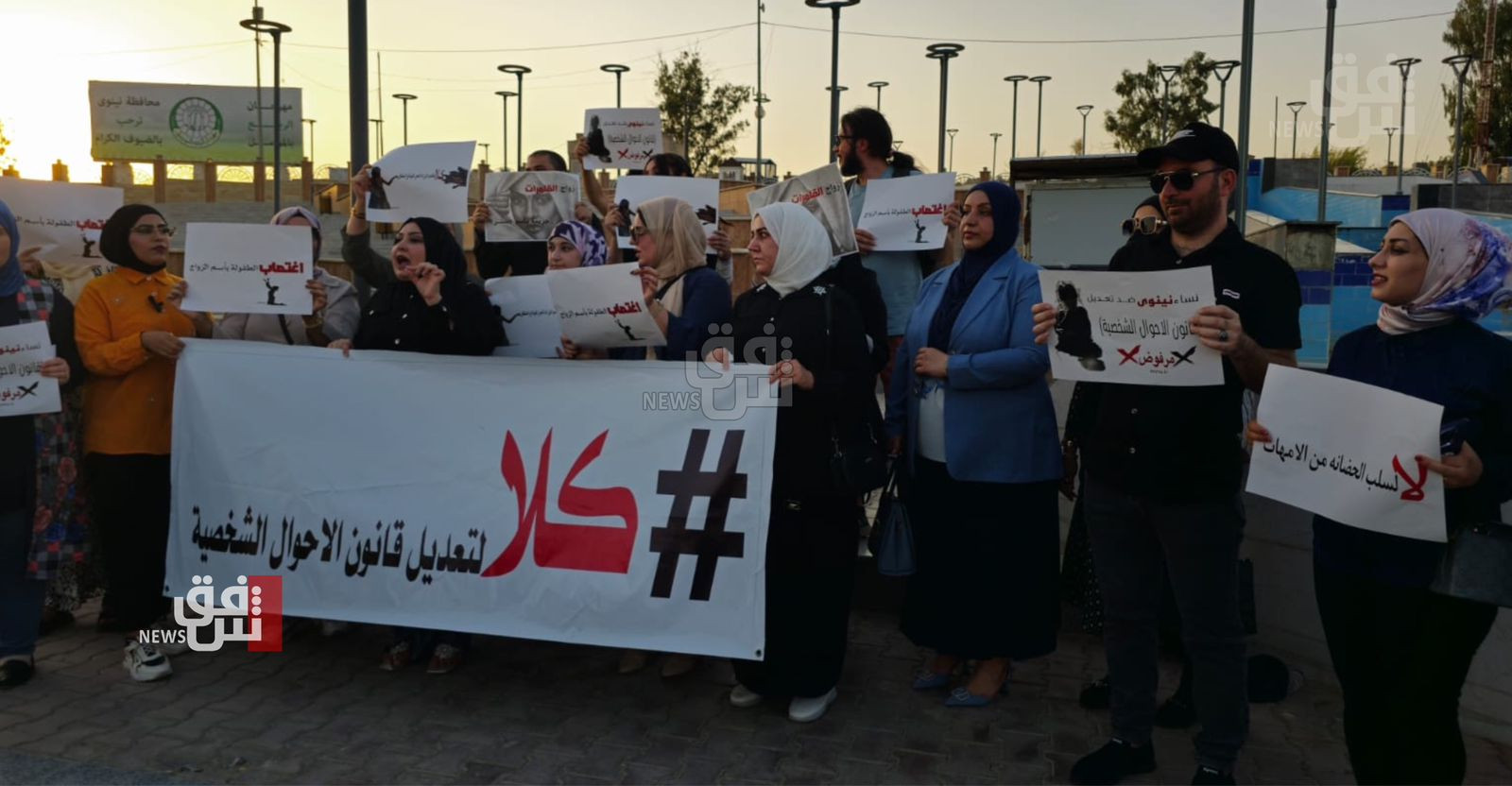European Parliament, Amnesty urge Iraq to reject amendments to Personal Status Law

Shafaq News/ The European Parliament and Amnesty International called on the Iraqi Parliament to completely and immediately reject proposed amendments to the Personal Status Law.
European Parliament
According to an official statement, European lawmakers warned of the consequences of the recent proposal, which they argue violates Iraq’s international obligations regarding fundamental women’s rights.
The members commended the Iraqi women, including female parliamentarians, as well as NGOs, activists, and civil society members, who have spoken out against the proposal, fighting to preserve one of the region’s most progressive laws.
They noted that the penal code currently does not legally protect women and children who are victims of domestic violence in Iraq. The proposed amendments to the Personal Status Law, if passed, would result in a "more radical" implementation of the law.
In a resolution passed on Thursday, the European Parliament urged Iraq to adopt a national action plan to eliminate child marriage, criminalize marital rape, combat domestic violence, and enhance the rights of women and girls in line with the UN Convention on the Elimination of All Forms of Discrimination Against Women (CEDAW).
The European Parliament also called on the EU delegation in Iraq to "make development grants conditional on judicial training related to sexual violence and the establishment of shelters for women" and urged EU member states to increase their support for women’s and children's rights defenders in the country.
Amnesty International
Amnesty International has urged Iraqi lawmakers to abandon proposed amendments to the Personal Status Law, warning that they would severely undermine women's and girls’ rights by lowering the legal marriage age and entrenching discrimination. The vote on these amendments is imminent in Iraq’s parliament.
Razaw Salihy, Amnesty International’s Iraq researcher, stated, “These amendments would abolish the current legal marriage age of 18 for both girls and boys, paving the way for child marriages. They also strip women and girls of protections concerning divorce and inheritance.”
Amnesty International also criticized the focus on these amendments, saying that "urgent legal reforms are needed to protect women and girls in Iraq," particularly in areas of domestic violence and so-called “honour” killings. The current Penal Code allows “honour” as a mitigating factor for killing women and girls and permits corporal punishment by husbands, while also failing to criminalize marital rape.
Amnesty International further stressed that these amendments violate international agreements Iraq has ratified, including the Convention on the Elimination of All Forms of Discrimination Against Women (CEDAW) and the Convention on the Rights of the Child (CRC). Salihy emphasized that ensuring the safety and dignity of women and girls is both a legal obligation and a moral imperative for Iraqi institutions.
Background
The first reading of the bill occurred on August 4, 2024. Similar amendments were introduced in 2014 and 2017 but failed to pass due to widespread public opposition. On September 3, 2024, Iraq’s parliament attempted a second reading of the draft bill, but a boycott campaign by opposing MPs successfully broke the quorum.
Despite these efforts, the second reading went ahead on September 16, with women MPs and other opponents expressing concerns that none of their recommendations had been incorporated, nor had a revised draft been shared. The following day, on September 17, the Iraqi Federal Supreme Court ruled that the amendments were in line with Iraq’s constitution.




